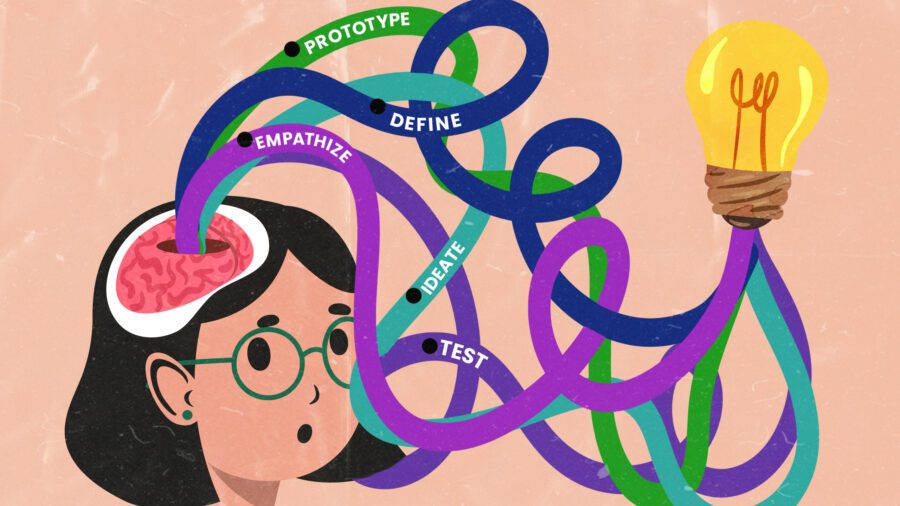
5 Scientifically Proven Ways to Learn a New Language from Scratch
Have you ever met someone who’s just a natural with foreign languages?
Maybe they’re always watching movies in Italian, making friends with those from all different countries, or picking up new dialects on their trips — all while making it look easy. Some folks naturally adjust to learning languages and seem to pick them up effortlessly.
What an advantage they have — speaking a foreign language opens so many doors, whether it’s amazing trips abroad, wider opportunities for connection, new avenues in work, or staying mentally sharp.
But contrary to popular belief, you don’t have to be a whiz with language to pick up a new one, and you also don’t have to spend hours using Rosetta Stone or reading grammar books in class. With consistent practice and the right combination of tools and techniques, you can go from a complete beginner to a conversational speaker relatively quickly.
Want to know how to learn a language fast? Read on for our top five ways to fast-track language learning.
#1: Immerse Yourself
There’s no doubt that immersion speeds up the language learning process.
In a sink or swim environment, you can’t help but pick up new words and phrases, and you get practice in all areas of language — speaking, listening, reading, and writing.
But immersion usually involves travel abroad, which isn’t exactly attainable for everyone. So if you want to experience immersion without becoming a world traveler, you’ll need to get creative.
This means using the language for everything you possibly can, even when you really don’t feel like it. It may make your daily tasks a little more challenging, but you’ll significantly boost your learning as a result.
How do you set up immersion at home? Let’s take Spanish as an example:
- Refer to objects around the house using Spanish
- Follow recipes in Spanish
- Look up directions in Spanish
- Write out your morning gratitude list in Spanish
- Watch the news in Spanish
- Listen to music in Spanish
- Switch your phone settings to Spanish
- Create Spanish social media accounts
- Use social media to find Spanish-speaking communities
- Listen to a guided meditation in Spanish
- Train your pet with some Spanish words
- Write out your to-do list in Spanish
- Play video games in Spanish
Then of course you’ll want to attend meetups, whether online or in-person, to amp up those conversation skills. You can also find language partners or private teachers at places like Conversation Exchange, Tandem, and Italki.
#2: Stop Trying So Hard
Grammar isn’t everyone’s cup of tea. While some seem to have a natural knack for it, others…not so much. Add to that the fact that our minds are already crammed with information and endless to-do’s, and suddenly trying to remember verbs and conjugations can feel like an impossible task.

In a 2014 study at MIT, researchers found that when subjects tried harder to learn units — such as root words, suffixes, and prefixes — of an artificial language, it actually slowed down their language learning progress. They suggested that advanced cognitive functions, like our ability to analyze and reason, can actually get in the way of language learning.
Just think about it — when we were kids, we learned languages passively. We picked it up through sheer exposure and repetition, which shaped the formation of our brains. And while scientists once believed this type of neuroplasticity — the ability of the brain to change in response to the environment and repeated behaviors — topped off in adolescence, recent studies show much different results.
In a 2018 study, researchers had Finnish speakers listen to Mandarin while they engaged in other tasks for two hours a day on four consecutive days. For some of the time, subjects were instructed to pay attention to a silent film instead of listening to the language. Brain wave scans showed that the subjects got better at differentiating between different speech sounds even when they were ignoring the sounds and focusing on the film.
All of this means that you don’t have to try so hard when learning a language! You can relax. Try cooking, decorating, working out, or crafting while you play your language of choice in the background. You’ll pick up more than you realize.
#3: Try the Spaced Repetition Hack
Do you struggle to remember new words? You’re not alone. We’ve all got a million things running through our heads, and a new, unusual-sounding word sometimes just doesn’t stick.
So it’s important to have a tried and true strategy for memorization.
Enter the spaced repetition hack. It operates on the principle that the more we are reminded of certain bits of information, the less we need reminders to remember them.
Just think about when you meet someone for the first time. They tell you their name, and you immediately forget it. Let’s say you bump into them all weekend though, and they keep reminding you. It’s pretty much cemented in your mind now.
Now that it’s stuck, you don’t rely on repeat reminders to remember them unless of course you never see them again. So while you won’t need constant reminders, you want to refresh your memory periodically.
The same thing happens when you memorize new words or information. To use this technique, you’ll want to repeat information in shorter intervals when you first learn them and in wider intervals once you’ve committed them to memory.
You might break it down like this:
- Within 24 hours of first learning them
- Two to three days later
- A week later
- Two weeks later
- Every few months
There are no hard and fast rules to this, so find what works for you! And if you need some help, you can try spaced repetition software that does the work for you.
Join In 200 Million+ On The Journey to Greatness
#4: Have Fun
Circling back to the fact that a grueling, mentally taxing approach to language learning will work against you, you should also try to have fun with it!
This has a number of benefits. Not only does it make it easier for you to absorb and retain information, but it will also make it easier to keep up with a routine, stick it out for the long haul, and maybe even pick up some real-life language skills that will work for you at the café or bar.
For example, try checking out YouTube channels of entertaining influencers, vloggers, and artists. When videos typically run between five to 30 minutes, it’s easy to work one into your day while gaining exposure to a much wider range of vocabulary and real-world use than you’d get in any class.
So if you’re learning Spanish, try Mexican travel vlogger Alex Tienda, Veneuzalian beauty vlogger Mariale, or zany Spanish vlogger ElrubiusOMG. You’ll gain exposure to different accents, learn words in context, and pick up new phrases.
Don’t just sit back and observe either. Check out the comments, post questions, and start conversations. If you can, join live chats.
You should also try going to cultural events with native speakers. Cooking classes, dance events, and meetups at bars with native speakers are all great, fun ways to learn and meet new people while sharpening your skills.
And don’t forget that many home immersion techniques are tons of fun. Why not play video games, teach your dog to sit, sing to new music, or take a dance class in a foreign language?
#5: Review Before Bed
Last but not least, timing is so important! For most, studying before bed is the ideal time to review work and really cement it into your memory.
A 2010 study found that napping improved study subjects’ learning retention, reinforcing notions that sleep clears the brain’s short-term memory storage and makes room for new information. A 2016 study echoes this one — researchers found that when subjects napped or slept after a study session, they retained information better than those who didn’t.
Plus, studying before bed may help the information sink into your unconscious mind. In a 2010 study, researchers found that students who dreamt about the material after studying it did better at solving a puzzle. They suggested that even if you don’t actually dream the answers to a problem, the process of dreaming itself helps the brain to reorganize and consolidate memories.
And that makes sense — haven’t you ever had a dream that echoed what happened in your day, played out an emotion you had or involved someone you spoke to? Didn’t it add clarity to how you were feeling when you woke up in the morning?
To really maximize this strategy, review information before bed and in the morning. Not only will you be reinforcing what you learned, but you’ll get into the habit of language learning.
Ready to Start Learning?
Now that you’ve seen how fun and relaxing language learning can be, it’s time to get started! It’s great to know that you don’t need any books, apps, or programs to start picking up something new today. So throw on the news in Spanish, check out a Japanese YouTuber, or start labeling things around the house in French.
However, if you want a little more support, there are always great online resources like:
Starting with even 10 minutes a day can help. Do you think that you don’t have 10 minutes? If you spent any time at all on social media today, we don’t believe you!
In a world that’s growing smaller every day, there’s really no reason not to learn a foreign language. Just think about the trips you’ll take, the jobs you’ll get, or the friends you’ll make once you’ve got a new dialect under your belt.
Cheers to language learning!
Greatness Authors
Greatness Authors is a collection of writers, thinkers, curiosity experts, and students of the world who are committed to bringing you the most up-to-date, impactful, and inspiring information surrounding Greatness topics.

Redefining Poetry: How Instagram Sensation Rupi Kaur Showed That Poetry Is for Everyone

The Young Professional’s Guide to Advocating for Yourself at Work & Setting Healthy Boundaries

Olympian Yusra Mardini’s Incredible Story of Resilience, Rescue, and Refugee Rights

A Beginner’s Guide to Effortlessly Attracting Money and Growth Opportunities

Psychologist Edith Eger’s Inspirational Journey to Find Forgiveness and What It Means for You











